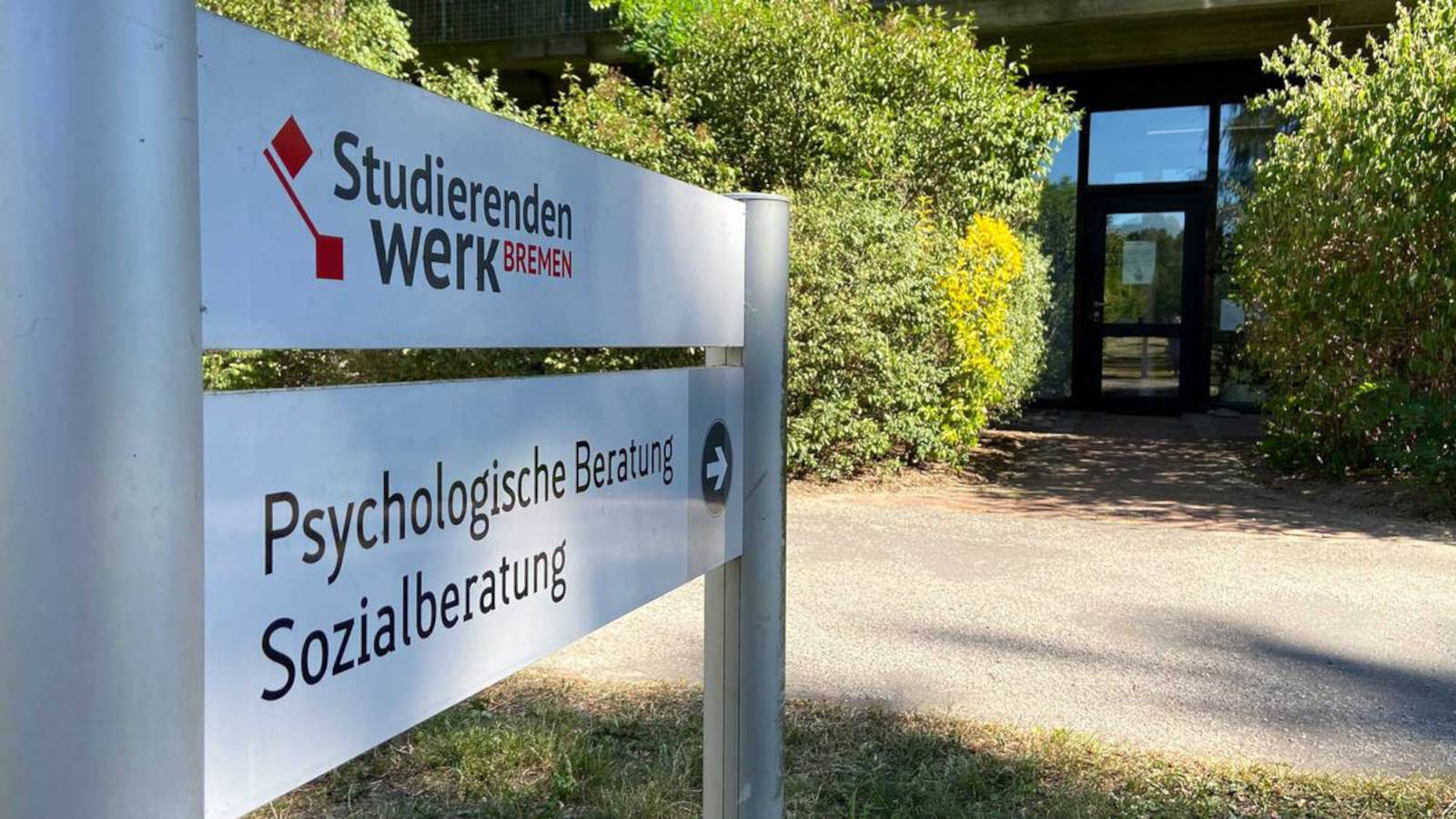
© Universität Bremen
Going Through a Crisis? The Psychological Counselling Centre Can Help
More than 1,000 students visit the Psychological Counselling Centre – part of the Studierendenwerk Bremen – every year. Frank Haber and his team are there to offer advice and support.
Whether it’s anxiety about exams, feeling overwhelmed, or relationship problems, Director Frank Haber and his team at the Psychological Counselling Centre and Social Counselling (PBS) of the Studierendenwerk Bremen can be a first port of call for these and many other issues. PBS also offers help before a crisis situation even arises. However, people tend to have a great deal of inhibition when it comes to confiding in a stranger about their problems or seeking help in general. In the following, Haber answers frequently asked questions about psychological counselling.
How do I get an appointment for a consultation?
To schedule an initial consultation, there are two options: either stop by the PBS on campus directly during the designated times or call us. In each case, you will be asked to briefly explain what led you to the centre. And at some point before your first consultation, you should have filled out the registration form, outlined your issue in more detail, and signed the data protection consent form. “This gives the counsellors an initial idea of what a student is seeking counselling about, ensures transparency in the handling of personal data, and enables them to prepare as well as possible for the first consultation,” explains Haber. You will usually get an appointment for a first consultation within three to four weeks. In the case of an urgent problem, it is possible to get a more timely appointment for a so-called short consultation.
How does the counselling work?
Unless it is a short consultation, the first appointment will last about an hour, during which you describe your issue to the counsellor and together you can look for initial solutions. In follow-up appointments, you can explore in more detail what you specifically need to continue working on your problem. “For example, we ask about how long the difficulty has existed, how much of a burden it is perceived to be, and what coping attempts there may have already been. Together with the student, we try to find out what the background of the problem is and what needs to be done differently in the future to improve the situation,” says Haber, describing the process. Even if you already have your own ideas about what you might need or what could help you, you should communicate this openly, advises the psychologist: “Students often come in with some sort of ‘tentative diagnosis,’ wondering, for example, if they might have an attention deficit disorder or suffer from depression. In the consultation we can discuss how this assessment came about and whether diagnostic clarification might be useful.”
Can counselling at PBS replace psychotherapy?
“No. Even though our counsellors are qualified psychotherapists, PBS is only a counselling service. This is because psychotherapy – unlike psychological counselling – has to be based on clinical diagnoses and is geared toward longer-term and more in-depth treatment processes,” explains Haber. On average, a student will have three to four consultations, with a maximum of ten. The counsellors can assess whether, for example, therapy is advisable and recommend where you can turn: “There are a number of options, such as various forms of outpatient therapy, inpatient stays, self-help groups, specialized counselling facilities, and digital counselling services.” The counsellors can also inform you about things such as the health insurance reimbursement procedure, or recommend where English-language counselling or therapy is offered, for instance.
Will it be noted in my medical record if I undergo psychological counselling?
The counselling centre’s offer is completely independent of the health insurance system and yet still free of charge for you as a student in the state of Bremen. It is a service provided by the Studierendenwerk partly financed by your semester fee. Your issue will therefore not be reported to your health insurance company or any other agency. The head of PBS knows that that is an important consideration: “Especially students of teaching and prospective lawyers still have the problem that having undergone psychotherapeutic treatments, for example, could have a negative effect on a desired appointment as a tenured civil servant in Germany.” The counsellors are of course bound by confidentiality and will not discuss your issues with anyone without your written consent.
Is there a special option for international students?
For students from abroad, studying in Germany can be challenging on many levels. PBS does not yet have a special counselling service for this purpose, but all of the counsellors know the problems of international students very well, can support you in English, and are also sensitized to cultural differences and experiences such as culture shock, discrimination, and racism. “In personal counselling sessions, we can also explain the local health and counselling system to international students, who often bring with them different experiences in dealing with mental health problems from their home countries; we can also address specific questions, such as the different services offered in the help system,” says Haber. And if financial or social questions arise, or questions dealing with residency issues, the team at the psychological counselling centre can refer directly to the social counselling service, which is also part of PBS.
You’d like a consultation?
The Psychological Counselling Centre and Social Counselling (PBS) is located in the Central Campus Building of the University of Bremen, below the cafeteria. Appointments can be made by phone or in person Mondays, Tuesdays, Thursdays, and Fridays from 9 a.m. to 1 p.m. and Wednesdays from 2 to 4 p.m. The counselling centre can be reached at +49 421 2201-11310 or by email at pbs@stw-bremen.de. In addition to in-person counselling, PBS also offers video-assisted, telephone, and online counselling. Further information can be found on the PBS website.